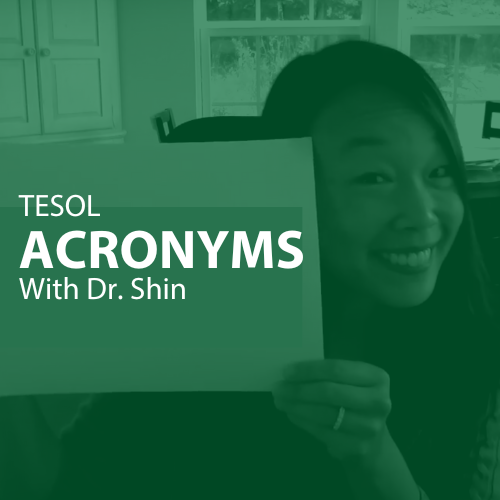It’s not every day that a student walking through campus stumbles upon a blast from the past—but that’s exactly what happened to Yasmin Sahal, a George Mason University transfer student in the Elementary Education Program.


It’s not every day that a student walking through campus stumbles upon a blast from the past—but that’s exactly what happened to Yasmin Sahal, a George Mason University transfer student in the Elementary Education Program.
Are you a graduate student in a teaching role? This semester, there are two professional development opportunities to enhance your skills as a Graduate Teaching Assistant (GTA), Graduate Lecturer (GL), or postdoc scholar. Read below to find out more about the Graduate Teaching Academy starting on Friday, 9/8, and the Graduate Teaching Training in MasonLeaps!
The Graduate Teaching Academy encourages participants to connect their scholarly activities with career and professional training centered on skill development. With face-to-face meetings and online modules, students will have opportunities to work with peers from different disciplines, building a community of support and development as they gain practical skills. Participants will work to create challenging and stimulating learning environments, while attending growth-based trainings providing personal enhancement.
Through a series of monthly face-to-face meetings, students will learn about communication styles in the classroom, assignment design, consideration for classroom activities in online classroom environments and climate, and have access to online modules on grading, assessments, and providing student feedback, and much more. Sessions start on Friday, 9/8, so register now!
For more information about the Graduate Teaching Academy, contact [email protected].
The new Graduate Teaching Training has launched in MasonLeaps! This online training module serves to introduce appropriate and relevant instructional support and resources, including pragmatic considerations and tools for graduate teaching assistants, graduate lecturers, and postdocs across Mason’s campuses.
Success as a Graduate Teaching Assistant (GTA), Graduate Lecturer (GL), or postdoc scholar depends on creating a welcoming, well-resourced learning environment. The Graduate Teaching Training, fitting within a bigger picture of graduate preparation at Mason, serves to elevate the overall student experience in the classroom. Register in MasonLeaps!
Contact [email protected] with questions.

ELL, EL, LEP, ESOL, TESOL, ESL, EFL, EAL, EIL. . . keeping up with the latest terms in education can feel like learning a new language! Dr. Joan Shin, Professor of Education at Mason and Director of Mason’s Global Online Teacher Education Center (GOTEC), has published a video to help students understand some of these commonly used acronyms. Watch this video by Dr. Shin or continue reading to learn more about what each of these terms really means and how to distinguish between them!
What does ELL stand for?
ELL – English Language Learner is the term that I hear people using the most often these days – especially my students, who are all preparing to become ESOL teachers. This is a good way to describe our students who are learning English as a second or additional language. However, it isn’t the most current way to refer to them!
EL – English Learner is the most updated term to use! This is what is being used now by the US Department of Education and you will start to see this more often. When we are talking or writing about our students who are learning English as a second or additional language, we want to try to use this term now.
LEP – Limited English Proficient is the old way to refer to our students who are learning English in our schools. This term is not currently used, as we don’t want to describe our students as “limited.” I only mention it because you may still see this on school documents or old articles. Always try to use EL – English Learner to refer to our students!
ESOL – English to Speakers of Other Languages is a popular term because it doesn’t exclude students who are multilingual – maybe they’re learning English as a third or fourth language. This is a common term in schools, and is also used in our program!
TESOL – Teaching English to Speakers of Other Languages is a term used to describe our field of study – you might be studying how to teach ESOL. You might also see TESOL to refer to a teacher association, in which case it stands for Teachers of English to Speakers of Other Languages and TESOL International Association is a great place to learn more about how to teach your English Learners.
ESL – English as a Second Language is used in the context where English is commonly spoken, like here in the United States, so we usually think about students studying it as a second language.
EFL – English as a Foreign Language is when English is being taught in a context where English is not commonly spoken. For example, in South Korea or Brazil oftentimes we describe students as learning English as a Foreign Language.
When you see these two terms in articles or in information about programs, now you know the difference – it depends on where you are learning English!
EAL – English as an Additional Language is often used nowadays instead of ESL – English as a Second Language. As previously mentioned, we have many students who are studying English, but it’s not their second language. Students who come from countries where people are multilingual might prefer to be described as learning English as an Additional Language.
EIL – English as an International Language might be used in place of EFL – English as a Foreign Language. This distinction emphasizes the status of English as a global language. People are learning English all over the world in order to communicate as a kind of as a “lingua franca.” It is this recognition that it isn’t necessarily a foreign language for people around the world – they’re learning this as an international language.
